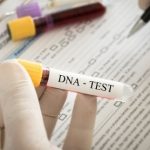In a move that seems deceptively futuristic, but is in fact a sign of the times, the Nazareth, Pennsylvania based Martin Guitar Company is making waves in their industry by including botanical genetic coding in the body of their instruments.
Generations of the Martin family have been proudly making guitars since 1833. The current management, headed by Chairman and CEO Christian Frederick Martin IV, recently decided that, in an attempt to continue to fight for their otherwise stellar reputation, they will implant each new instrument with a DNA tag designed to thwart counterfeiters and send a message that they will not watch their company’s reputation diluted by cheap knockoffs, coming predominately out of China.
Gregory Paul, the company’s vice president of operations said, ””The Martin family has always been vocal about fighting overseas counterfeiters. They have had a particularly hard time persuading the Chinese Government to prosecute imitators who have been selling inferior products under the C.F. Martin name.” “The Internet makes it too easy for a counterfeiter or their distributor to offer even a handful of units to a very broad audience. Ads for these sites crop up every day.”
The genetic tagging was developed by Applied DNA Sciences a company from Stony Brook, N.Y., which pioneered the technology allowing manufacturers to mark their products with a unique trace of plant DNA. According to a spokesman for the company ”The DNA tag itself can be put into anything in the production process it can be put into ink, for labels on wine bottles. It can be put into glue or varnish or just about anything.”
Applied DNA is also working with the Department of Defense to put tags on microchip components that go into weapons systems in order to combat counterfeit chips that have been making their way into the military supply chain.
What we wonder is how, exactly, the instruments will be tested for authenticity and how much it will cost to do so. Furthermore, if DNA/genetic coding can be found in the guitar and used for genetic testing to confirm authenticity, then won’t counterfeiters be able to obtain and replicate the DNA from the instrument(s) and apply it to their own?
Big questions for a big future in genetics…




